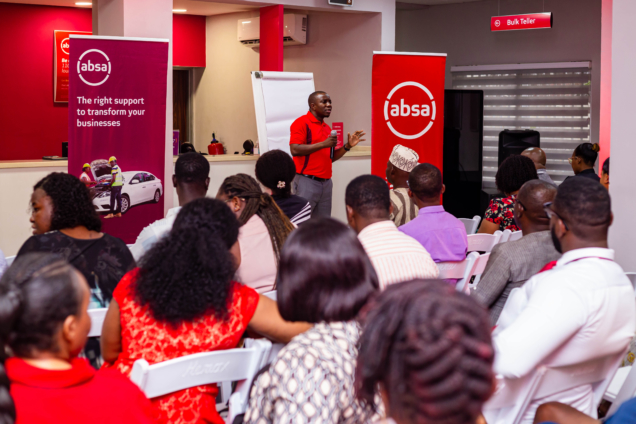Absa Bank has implored small and medium-scale enterprises (SMEs) to adjust their operations and prioritise liquidity to survive the current economic challenges.
The country has made good progress in restructuring its domestic debts under an exchange programme that was concluded earlier this month. Negotiations for an IMF bailout programme are also underway.
However, until that is concluded, the economy continues to face challenges, evident in high inflation, a weak exchange regime and high-interest rates – all unfavourable to businesses.
At an engagement session organised for its SME clients in Accra, Executive Director for Retail and Business Banking at Absa Bank, Kobla Nyaletey, said “Businesses need to survive the pre-IMF period and re-set their operations to thrive during the next phase.
"Cost containment, a no-frills approach to operations and a focus on getting cash into their businesses early, will be key.”
“Liquidity is king in volatile times. Businesses that generate frequent cash, have low receivables and diversify their business models from reliance on big-ticket contracts, will survive and begin to thrive when the economic challenges recede.”
The SME clinic, attended by over 200 clients, was under the theme “Survive and Thrive: tactics for uncertain times.”
It was also the first in-person SME engagement for the bank’s customers since the COVID-19 pandemic.
In her opening remarks, the Head of SME Banking and Partnerships at Absa Bank, Audrey Abakah reiterated the bank’s commitment to creating a learning platform for SMEs to build capacity and enhance their knowledge in financial management.
She advised participants also to leverage customer service experience to transform their clients into net promoters for free.
As part of the engagement, the SME businesses were taken through a series of practical sessions, including liquidity management, cost line management, revenue generation and utilisation of credit lines.
The Absa SME Clinic was created to assist SMEs in gaining access to the Bank's specialised capacity-building programme, which aims to inform and assist small businesses to operate strong and sustainable enterprises. It also provides a platform for direct communication between customers and the Bank.
Latest Stories
-
Paris 2024: Opening ceremony showcases grandiose celebration of French culture and diversity
3 hours -
Spectacular photos from the Paris 2024 opening ceremony
4 hours -
How decline of Indian vultures led to 500,000 human deaths
4 hours -
Paris 2024: Ghana rocks ‘fabulous fugu’ at olympics opening ceremony
5 hours -
Trust Hospital faces financial strain with rising debt levels – Auditor-General’s report
5 hours -
Electrochem lease: Allocate portions of land to Songor people – Resident demand
5 hours -
82 widows receive financial aid from Chayil Foundation
6 hours -
The silent struggles: Female journalists grapple with Ghana’s high cost of living
6 hours -
BoG yet to make any payment to Service Ghana Auto Group
6 hours -
‘Crushed Young’: The Multimedia Group, JL Properties surprise accident victim’s family with fully-furnished apartment
6 hours -
Asante Kotoko needs structure that would outlive any administration – Opoku Nti
7 hours -
JoyNews exposé on Customs officials demanding bribes airs on July 29
7 hours -
JoyNews Impact Maker Awardee ships first consignment of honey from Kwahu Afram Plains
8 hours -
Joint committee under fire over report on salt mining lease granted Electrochem
8 hours -
Life Lounge with Edem Knight-Tay: Don’t be beaten the third time
9 hours

